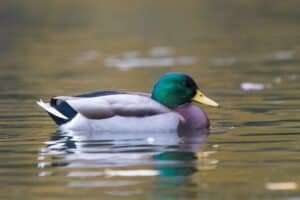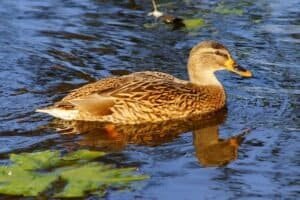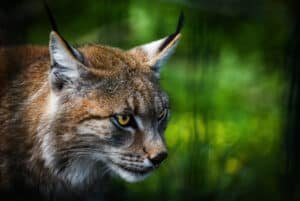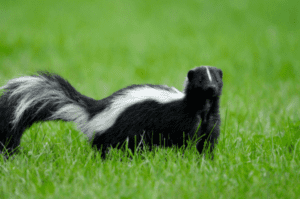Have you ever wonder Do Ducks Eat Fish In Ponds? The short answer is yes, ducks do eat fish in ponds. However, this does not mean that all ducks will eat fish or that it is a staple part of their diet. Many people enjoy watching ducks in ponds or lakes, and some may have even noticed that they seem to be constantly diving for food. The truth is that the food habits of ducks can vary depending on their species, location, and seasonal availability.
Some species of ducks, such as the mergansers and goldeneyes, are known to be fish-eaters. These types of ducks have specialized bills that are adapted for catching and eating fish. They also have a higher protein requirement in their diet compared to other duck species. This means that they may actively seek out and consume fish in ponds or lakes.
Some ducks are primarily herbivores and will not eat fish at all. These ducks, such as mallards and wood ducks, have diets that consist mainly of plants, seeds, and insects. They may occasionally eat small aquatic creatures like snails or tadpoles, but fish is not a regular part of their diet.
Table of Contents
Do Ducks Eat Fish In Ponds? What kind of fish does Ducks eat in pond?
If you are wondering what kind of fish ducks eat in ponds, the answer is small fish. Ducks do not have the ability to catch large or fast-moving fish, so they usually go for smaller and slower ones.
Some common types of fish that ducks may feed on include minnows, guppies, bluegills, and goldfish. This variety in their diet is essential for their health and survival.
Why do Ducks eat fish in ponds?

Ducks may eat fish in ponds for various reasons. As mentioned earlier, some duck species have a higher protein requirement in their diet, and fish is an excellent source of this nutrient. Ducks may also eat fish to supplement their diet during the breeding season when they need extra energy for egg-laying and rearing their young.
Moreover, ducks are opportunistic feeders, meaning they will consume whatever food is readily available to them. In some cases, fish may be more abundant than their usual food sources, making it a convenient and tasty meal for the ducks.
Ducks and Fish Interaction in Ponds
The relationship between ducks and fish in ponds is not always a harmonious one. While some ducks may consume fish as part of their diet, others may compete with the fish for food or even prey on smaller fish. This can cause tension between duck populations and fishermen who are trying to maintain healthy fish populations in ponds.
What are the potential Impact of Ducks eating fish in ponds?
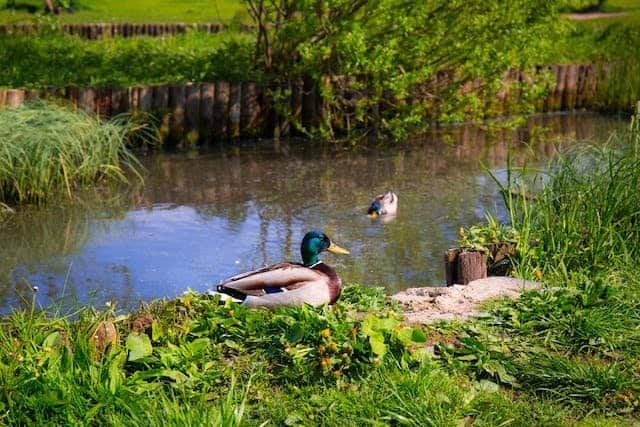
Although ducks eating fish in ponds is a natural occurrence, there can be deep impact for both the ducks and the pond ecosystem. If there is an overabundance of ducks in a small pond, they may deplete the fish population and disrupt the balance of the ecosystem. This can lead to a decline in water quality and affect other plant and animal species living in the pond.
Furthermore, if ducks are fed by humans in ponds or lakes, it can encourage them to stay longer than necessary and create an unhealthy dependence on handouts rather than finding their own food. This can also lead to an increase in duck populations, causing further disturbance in the ecosystem.
Do Ducks Eat Pond Tadpoles and Frogs? Is This Beneficial
Yes, ducks may also eat tadpoles and frogs found in ponds. These small aquatic creatures are a good source of protein for ducks, especially during the breeding season when they need extra nutrients for egg production and caring for their young.
It is essential to note that tadpoles and frogs play an important role in the pond ecosystem as well. They help control insect populations and serve as prey for other animals, such as birds and fish. Therefore, it is crucial to maintain a healthy balance and not let any one species overpopulate the pond.
Do Ducks Eat Pond Algae? Is This Healthy for Ducks
Yes, ducks may also eat pond algae. Algae is a common food source for many aquatic animals, and ducks are no exception. They may consume algae while feeding on other plants or by actively picking it off the surface of the pond.
However, too much algae can be harmful to ducks as well. An overabundance of algae can lead to low oxygen levels in the water, making it difficult for ducks and other aquatic animals to survive. Therefore, it is essential to maintain a balance of algae growth in ponds.
What Food Can You Feed to Pond Ducks?
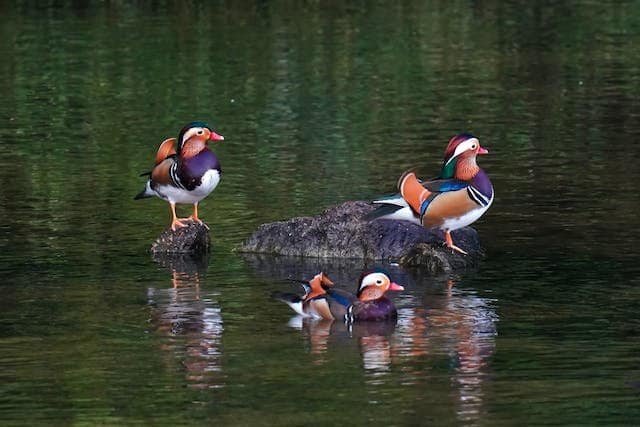
If you enjoy feeding ducks in ponds, there are some safe and healthy options for food that you can offer them. These include:
- Bread (in small amounts)
- Cut-up fruits and vegetables
- Pelleted duck feed
- Insects or mealworms
- Rice (cooked without added salt)
These foods can provide them with nutrients and vitamins that they need for development and healthy growth. It is necessary to avoid feeding ducks anything salty, sugary, or processed. These foods can be harmful to their health and contribute to water pollution in the pond.
What Types of Food You Shouldn’t Give to Pond Ducks?
While ducks may enjoy a variety of food items, there are certain types of food that you should avoid feeding them. These include:
- Processed foods (like chips or crackers)
- Sugary foods (like cookies or candy)
- Moldy bread or other food
- Anything salty (like pretzels)
Not only can these foods be unhealthy for ducks, but they can also disrupt the balance of the pond ecosystem. Moldy bread or other food may contain harmful bacteria that can make ducks sick, while salty foods can contribute to water pollution and harm other organisms living in the pond.
Final Thoughts
In conclusion, ducks do eat fish in ponds, but it is not the only food source for all duck species. Their diet can vary depending on their location, habitat, and seasonal availability of food. As responsible observers or caretakers of pond ecosystems, we must be mindful of how our actions can impact these animals and strive to maintain a healthy balance for all species living in the pond.
Read Also: What Do Ducks Eat In The Water?


